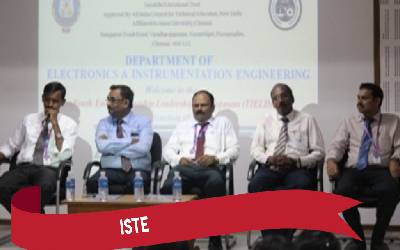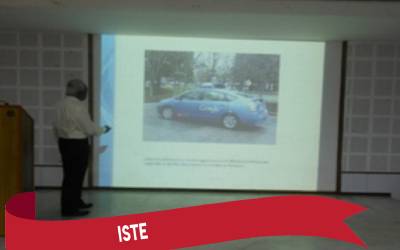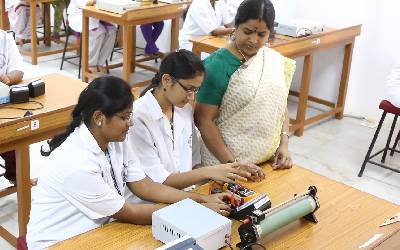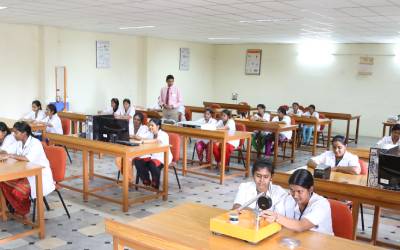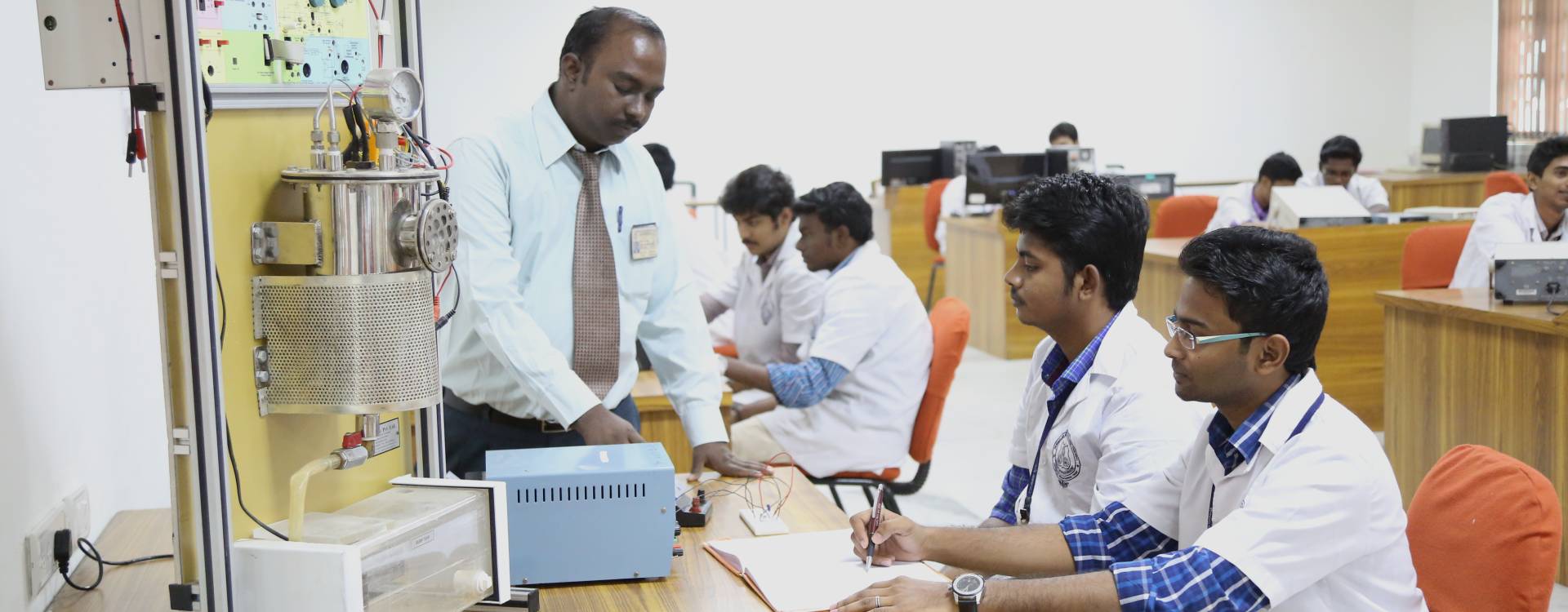
About the Department
Question Bank
About the Department
The Department of Electronics and Instrumentation Engineering was started in the year 2007 with an intake of 60 students. Electronics and Instrumentation Engineering mainly deals with Electronics, Control system, Automation and Instrumentation subjects. The Department has well qualified and experienced faculty members and technically competent supporting staff on its role.
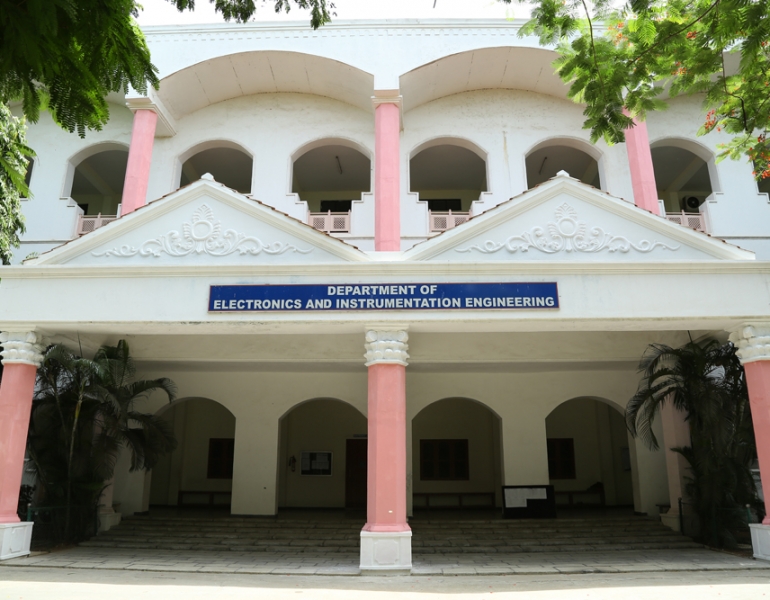
The Department conducts co-curricular activities such as Guest Lectures, Seminars, Training programs, Workshops, etc. The Department also organizes industrial visits to help students to update their knowledge.
An exclusive Training and Placement cell is functioning for providing continuous training and placement assistance to the students during their course of study. The students are trained by internal trainers and industry experts with various training partners to improve their employability skills like soft skills, technical, analytical and logical skills. Apart from training, to enhance the innovative thinking and managerial skills of young minds, they are encouraged to organize and participate in various events like paper presentations, technical symposia and project presentations.
Vision and Mission

VISION
To produce technically competent Electronics and Instrumentation Engineers with ethical and moral values, who can tackle the challenges facing the society and industry at national level and global level.
MISSION
- To provide fundamental knowledge and quality technical education through effective teaching and learning process.
- To prepare graduates to meet the needs of industry through creative projects, soft skills and industry interaction.
- To create passion for learning to pursue higher studies and research towards serving society with moral and ethical standard.
HOD Profile
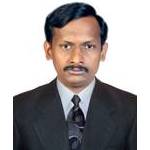
Dr. C. ESAKKIAPPAN, M.E, Ph.D
Professor and Head of the Department of Electronics and Instrumentation Engineering
He hails from Tirunelveli District, Tamil Nadu, India. He received his B.E degree in Electronics and Instrumentation Engineering from Manonmaniam Sundaranar University, Tirunelveli in 1998 and M.E degree in Control Systems from Jadavpur University, Kolkatta in 2003. He has obtained his Ph.D degree in the field of Process Control under the Faculty of Electrical Engineering from Anna University, Chennai in the Year 2013. Presently, he is working as Professor & Head in the Department of Electronics and Instrumentation Engineering, Panimalar Engineering College, Chennai, Tamil Nadu. He has been in teaching profession for the past 20 years. He has presented many papers in International conferences and published many papers in International journals. He has also received award for presenting the best paper in the IEEE international conference. His area of interest includes: Relay Feedback, System Identification, Neural Networks and Advanced Process Control.
Programme Educational Objectives(PEO)
Programme Outcomes (PO)
Programme Specific Outcomes (PSO)
Courses
Being permanently affiliated to the Anna University, The Electronics and Instrumentation Department of Panimalar Engineering College follows the courses and syllabus prescribed by Anna University which focus on and provide in-depth studies in the following main stream topics:
- Transducer Engineering
- Digital Logic Circuits
- Electronic Devices and Circuits
- Linear Integrated Circuits and Applications
- Electrical Measurements
- Electrical Machines
- Discrete Time Systems & Signal Processing
- Microprocessor & Microcontroller
- Control Systems
- Power Electronics
- Analytical Instruments
- Industrial Instrumentation I
- Modern Electronics Instrumentation
- Process Control
- Industrial Instrumentation II
- Communication Engineering
- Embedded Systems
- Industrial Data Networks
- Logic Distributed Control System
- VLSI Design
- Fiber Optics and Laser Instruments
- Biomedical Instrumentation
- Computer Control of Processes
Elective Courses
- Power Plant Instrumentation
- Microcontroller Based System Design
- Operating Systems
Activities
Department Activites
Club Activities
The IMC (Intellectual Machine Club) student club dedicated to and promoting a dynamic machine learning community on Electronics and Instrumentation engineering department. We are passionate about exploring and applying the fields of machine intelligence to tackle real-world challenges. We hold project-based workshops, tutorials and events centered on topics of machine learning and data science.
Professional Society
ISTE
Indian Society for Technical Education (ISTE) is the leading National Professional non-profit making Society for the Technical Education System..
IEEE Chapter
IEEE Student branch was to provide global platform to inspire, enable, develop and support students as the future leaders of our profession…
Activities
| S.No | ORGANIZATION | NO. OF STUDENTS SELECTED | COMPENSATION OFFERED PER ANNUM |
| 1 | Accenture | 11 | 3,50,000 |
| 2 | Amazon Development Centre (India) Pvt. Ltd | 1 | 2,30,000 |
| 3 | Emerson | 1 | 3,30,000 |
| 4 | Wipro | 1 | 3,00,000 |
| 5 | Hexaware Technologies | 5 | 2,00,000 |
| 6 | Hi Tech Calibration Services | 2 | 2,06,720 |
| 7 | Infosys | 3 | 3,30,000 |
| 8 | Johnson Controls | 1 | 3,80,004 |
| 9 | L & T Electrical & Automation | 1 | 1,50,909 |
| 10 | Neuro Tech | 1 | 2,10,000 |
| 11 | Precia Molen | 1 | 2,15,000 |
| 12 | Schneider Electric India Pvt. Ltd | 2 | 3,25,000 |
| 13 | Sutherland Global Services | 5 | 2,40,000 |
| 14 | TVS Next Step | 5 | 2,05,000 |
Survey Forms
Department Library
The Department Library has separate from central and other libries which provides the staff and students latest informations in technical education research and development activities.
| Dept | Total No. of Volumes | Total No. of Titles |
|---|---|---|
| Dept. of EIE. | 1247 | 382 |
These Library subscribes 32936 National & International E-Journals including
- IEEE
- Springer
- Elsevier
- Mcgraw Hil
- STM Journals
Journal In addition 4211 E-Books in all the fields of Engineering, Management, Basic Science and Humanities is the regular feature of our library. Every effort has been made to obtain all titles recommended by the faculty
Value Added Program
To bridge the gap between the academic and industry needs, value added courses are conducted regularly in our department. Value Added Course offered by our department:
- Workshop on LABVIEW Programming
- Workshop on PLC Programming
- Workshop on MATLAB Programming
- OOPS concept and its Application
- Personality Development programs.
- Mock Interview, Aptitude test, Group Discussion, Seminars
Question Bank - Academic Year 2023 - 24 (Even Semester)
| YR/SEM | SUB CODE | SUB TITLE | GOOGLE SITES |
|
1. |
IV/VIII |
GE8076 - Professional Ethics in Engineering (Professional Elective IV) |
https://sites.google.com/view/ge8076-professionalethicsineng/question-bank |
|
2. |
IV/VIII |
EI8079–Robotics and Automation (Professional Elective V) |
https://sites.google.com/view/ei8079-robotics-and-automation?usp=sharing |

